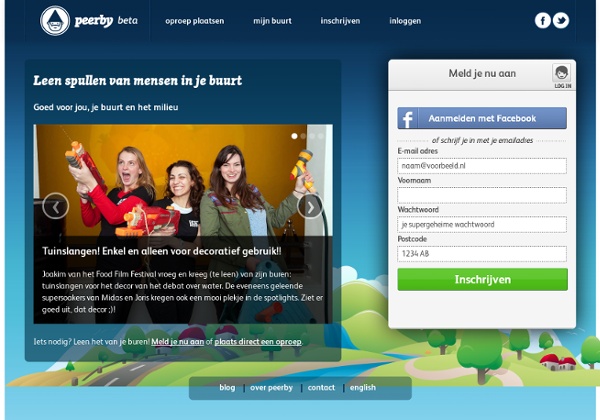



It's Time to Go Big: A Vision for the Sharing Economy The sharing economy is in a regulatory crisis. Airbnb’s hotel tax issues, the cease and desist orders slapped on peer mobility apps Sidecar and Lyft, and other brushes with the law have catalyzed a flurry of organizing and dialogue about sharing economy regulation. It started with the launch of San Francisco’s Sharing Economy Working Group in April, and was followed with the formation of the Bay Area Sharing Economy Coalition in August, lobbying by the Collaborative Economy Coalition at the Democratic National Convention in September. SPUR’s Gabriel Metcalfe wrote a provocative opinion piece about it earlier this month, and Shareable’s April Rinne and NYU professor Arun Sundararjan offered much commented counterpoints. This is a sure sign the sharing economy is maturing. It’s big enough for the government to take notice and participants are strong enough to begin working together. Lead with vision Apple’s 1984 Macintosh TV ad is a famous example. Dr. Offer the vision This is good.
De geneeskracht van zevenblad | Mens en Gezondheid: Gezonde voeding Wanneer je een moestuin hebt dan wordt deze niet zelden overwoekerd door zevenblad. Zevenblad is het gemakkelijkst te herkennen aan het feit dat elk takje zeven blaadjes heeft. Wat moet je tegen een grote expansie van zevenblad in de tuin doen? Inhoud: Bodembedekkende groente Zevenblad is door de oude Romeinen verspreid. Voedingswaarde zevenblad Zevenblad is lekker als alternatief slablad in een originele salade maar je kunt het bereiden als spinazie. Zevenblad als eetbare bodembedekker Geneeskracht Zevenblad versterkt de werking van de nieren en is urineafdrijvend. Eettips zevenblad Zevenblad is een lekkernij wat enigszins naar peterselie smaakt. Botanische tekening zevenblad Zevenbladpesto Je kunt zevenblad gebruiken om een pesto mee te maken. Kruidenboter Je kunt een heerlijke kruidenboter met zevenblad maken: Neem een pakje roomboter en doe er fijngehalte brandnetel, daslook, tijm en zevenblad door. Hartige taart Je kunt ook een hartige taart maken met zevenblad. Lees verder
Coste total de propiedad El coste total de propiedad o costo total de propiedad (proveniente del término anglosajón Total Cost of Ownership o TCO), es un método de cálculo diseñado para ayudar a los usuarios y a los gestores empresariales a determinar los costes directos e indirectos, así como los beneficios, relacionados con la compra de equipos o programas informáticos. El CTP ofrece un resumen final que refleja no sólo el coste de la compra sino aspectos del uso y mantenimiento. Esto incluye formación para el personal de soporte y para usuarios, el coste de operación, y de los equipos o trabajos de consultoría necesarios, etc. El análisis del coste total de propiedad fue creado por el Grupo Gartner en 1987 y desde entonces se ha desarrollado en diferentes metodologías y herramientas de software. Por ejemplo, la compra de un ordenador puede incluir la compra en sí misma, reparaciones, mantenimiento, actualizaciones, servicios y soporte, redes, seguridad, formación de usuarios y costes de licencias.
Sistema de planificación de recursos empresariales La planificación de recursos empresariales es un término derivado de la planificación de recursos de manufactura (MRPII) y seguido de la planificación de requerimientos de material (MRP); sin embargo los ERP han evolucionado hacia modelos de suscripción por el uso del servicio (SaaS, cloud computing). Los sistemas ERP típicamente manejan la producción, logística, distribución, inventario, envíos, facturas y contabilidad de la compañía de forma modular. Sin embargo, la planificación de recursos empresariales o el software ERP puede intervenir en el control de muchas actividades de negocios como ventas, entregas, pagos, producción, administración de inventarios, calidad de administración y la administración de recursos humanos. Los ERP funcionaban ampliamente en las empresas. Definición[editar] Las aplicaciones ERP son sistemas de gestión global para la empresa. Los objetivos principales de los sistemas ERP son: Modulares. Otras características destacadas de los sistemas ERP son: